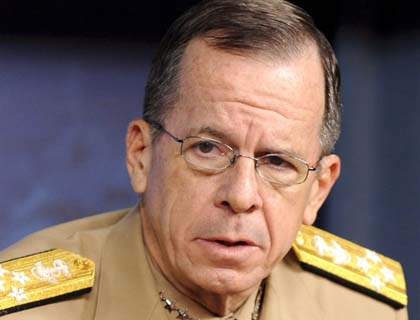Obama’s decisions are more aggressive and incur more risk: Mullan
WASHINGTON - U.S. military commanders distanced themselves on Thursday from President Barack Obama's timetable for withdrawing forces from Afghanistan, telling Congress they had sought a slower, less risky drawdown.
General David Petraeus, who is leading the U.S. war effort in Afghanistan, and Admiral Mike Mullen, the chairman of the Joint Chiefs of Staff, were clear in stating their public support for the decision Obama announced on Wednesday and said they would do their best to carry it out.
But at the same time they warned that the pace of the drawdown, which calls for a third of U.S. forces in Afghanistan to leave by the end of next summer, would create additional risks to the unpopular, nearly decade-old campaign.
"The president's decisions are more aggressive and incur more risk than I was originally prepared to accept," Mullen, the top U.S. military officer, told a House of Representatives committee hearing.
Pressed by lawmakers, Mullen later added that he had concluded that the risks were manageable.
Petraeus scoffed at a suggestion he could have resigned over the president's plan. Obama, he said, ultimately had to factor in more than just battlefield conditions when making his decision -- an apparent reference to crumbling domestic support for the Afghan war.
"It is again a more aggressive approach than (top commanders) and I would have indeed certainly put forward, but this is not something I think where one hangs up the uniform in protest, or something like that," Petraeus said at his Senate nomination hearing to become the next CIA director.
Obama, speaking to about 200 soldiers at an Army base in upstate New York, defended his drawdown timetable and said the United States had turned a corner in the campaign that would allow for withdrawal.
"We're not doing it precipitously. We're going to do it in a steady way to make sure that the gains that all of you helped to bring about are going to be sustained," Obama told soldiers of the 10th Mountain Division, who listened mostly in silence.
But the military's comments, while carefully phrased, were an unusually blunt public admission of initial Pentagon resistance to the kind of speedy Afghan drawdown that Obama settled on. Military leaders had lobbied privately for more time, and outgoing Defense Secretary Robert Gates said publicly any troop withdrawal should be modest.
Gates, in an interview with PBS NewsHour, came out in support of Obama's decision, saying: "As I listened to the debate go forward, I became a strong advocate (for) the end of summer as one (option) that struck a balance between our military needs and sustainability here at home."
In Kabul, Afghan President Hamid Karzai, Washington's ally in a relationship made tense by allegations of incompetence and corruption, welcomed the plan for a gradual pullout and said Afghans increasingly trusted their security forces.
European nations that have contributed troops to the military effort against the Afghan Taliban insurgency said they would proceed with already planned phased reductions. They included France, Germany, Poland and Spain.
The Taliban, resurgent a decade after being toppled from power by U.S.-led forces following the September 11 attacks, dismissed Obama's announcement and said only a full, immediate withdrawal of foreign forces could stop "pointless bloodshed." (Reuters)

